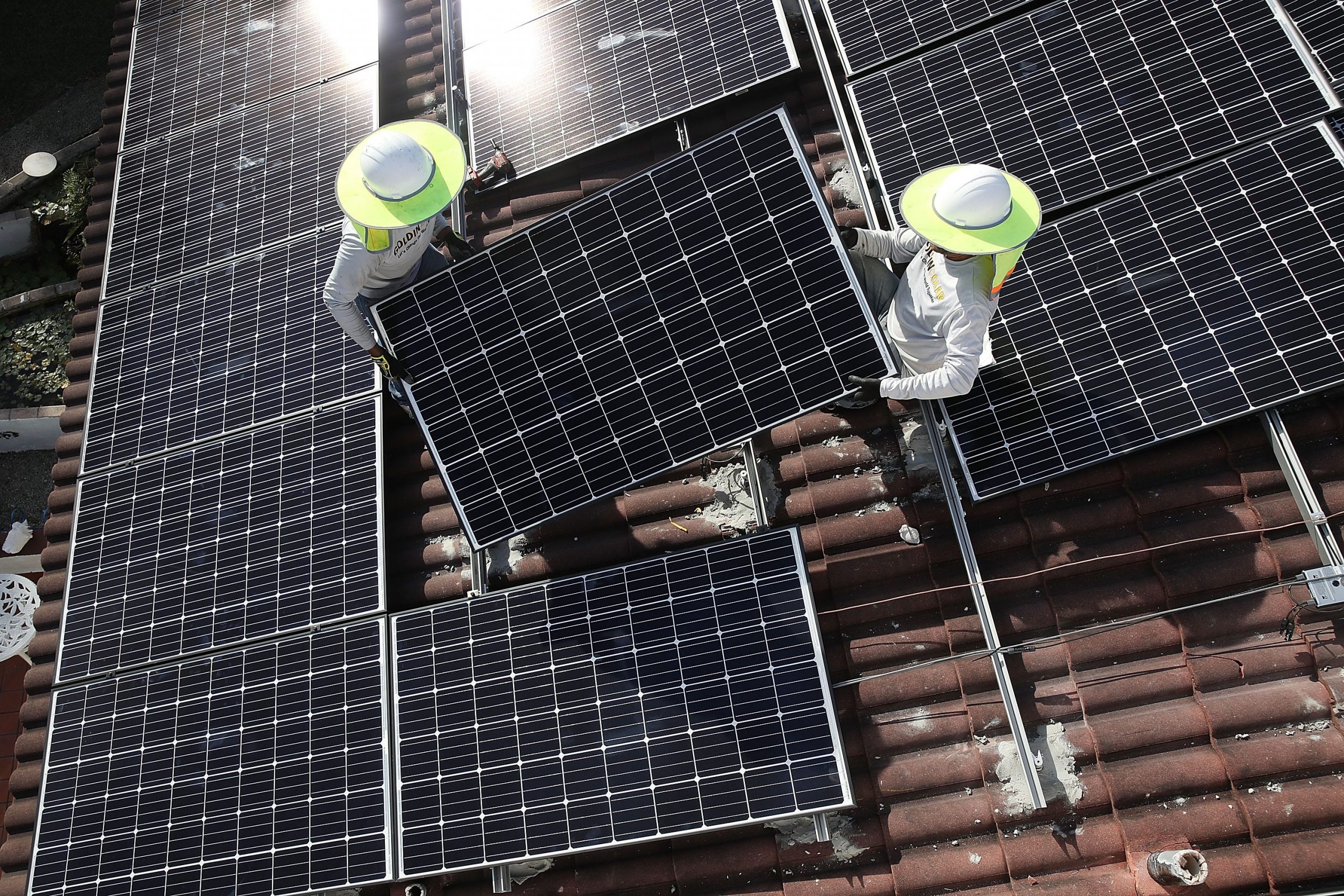Welcome to Power Line, a weekly energy newsletter brought to you by Business Insider.
Here’s what you need to know:
- Want to get this newsletter in your inbox every Friday? Sign up here.
- Most of our content is available to BI Prime subscribers. Click here for 20% off.
- Got a tip or feedback about this newsletter? You can reach us at [email protected].
Memorial Day weekend is here. Oil markets are swiftly recovering. My radishes have finally sprouted! See, we can have nice things.
Dear reader, I hope you have at least one non-Zoom activity planned for the long weekend.
I, for one, will be spending this afternoon driving through country roads in Iowa - obviously, not for vacation, but for a story about a small town's battle against … smart meters. More on that next week.
Let's get to it.
Solar ads full of misleading claims have been circulating on Facebook
As an employee of a digital media outlet, I will be the first to say that ads can be super annoying. But as we recently discovered, some solar ads are just downright shady - and this is an industry that's literally run on sunlight.
We reviewed solar ads on Facebook that make all kinds of claims that experts say could be harmful to consumers.
- Some suggest that there's a new government stimulus program for solar, which isn't true.
- Others appear as if they're endorsed by an official organization or state, which, again, isn't true.
Who's behind them? Wow, great question! It's really hard to say.
- Most of them are published by lead generators - typically, websites designed to gather personal information from a prospective customer, which they then sell.
- Lead generators often aren't forthcoming about the companies they represent.
But: Don't let this turn you off to solar. There are a bunch of legitimate incentives and, obviously, solar is a source of clean energy.
- Currently, there's a 26% federal tax credit for residential and commercial solar (you can read more about that here.)
- Different states have their own policies and rebate programs that can further lower the cost.
- 38 states, DC, and three US territories have mandatory net metering rules, meaning that if you have solar and generate more energy than you need you can get a credit on your electricity bill, according to the Solar Energy Industries Association.
- There's not a ton of research on cost savings, but one 2019 study found that "residential solar adopters reduce summer electricity bills by 61% on average."
The price of oil has been 'furiously' rallying - but we're not in the clear just yet
Remember that time that US crude went negative? I do. Because it was literally just over a month ago.
Now, US crude is over $30 a barrel - back to where it was in March.
Why is it back up? As lockdowns ease, there's an uptick in demand for fuels like gasoline. Plus, producers are steeply cutting production (whether they want to or not).
- June oil demand is expected to be down by about 14%, according to the research firm Rystad Energy.
When will oil hit $40 and beyond? US crude could hit that mark sometime before the end of the year, according to Bank of America analysts.
- It was just over $60 a barrel at the start of the year.
What's the chance of more negative prices? Very low, unless there's a massive resurgence of coronavirus cases as economies reopen. Even then, chances are slim.
Is this good news for the oil industry? Overall, yes. But prices are still down, which analysts say could do long-term damage to companies that have higher costs of production.
- Here are the 25 companies that are most at risk of defaulting on their debt.
- Private equity firms that back oil and gas companies are in poor shape, too.
- Here's how 18 of the top oil companies have responded to cheap oil.
Investing: One big no-no for private equity, and top stock picks
Do you even invest, bro? I don't. However, I talk to a lot of people that do.
Pro-tip: Be careful when buying "on the dip" if you're a private-equity investor.
- There can be a desire by investors to get in when companies are cheap, said Adam Waterous, founder of Waterous Energy Fund.
- But in the past, that approach burned a lot of investors who were depending on M&A for returns on their investments.
- About 80% of North American oil and gas companies backed by private equity don't have buyers, he said.
OK, but: If you invest in the stock market, Morgan Stanley has suggestions for where to place your bets.
- The bank published a comprehensive note on utility investing. Here are its top 12 picks.
- Analysts at the firm also published their top 5 oil and gas picks, which they say are positioned to "thrive" as oil markets recover.
A couple of quick notes
Business Insider is hiring. It was hard watching so many incredible journalists lose their jobs this week. We have some openings available, so check out our careers page.
- As our global editor in chief recently wrote on Twitter: "We pay above market," and "we are a high autonomy/high accountability culture."
- If you're a journalist and have questions about working here, feel free to email me.
An update on rising stars. We're working on it. Our rising stars of clean energy project took a back seat for the past couple of months as we shifted priorities, but we're planning to get that up soon.
4 big stories we didn't cover
- Energy outlook: In 2020, the growth of renewable energy is set to fall for the first time in 20 years, according to a new report by the International Energy Agency.
- But next year, "renewables are expected to show their resilience," the agency said.
- Big tech backs climate: This week, Google said it won't build new AI tools for oil and gas extraction, payment processor Stripe revealed it's spending $1 million on carbon-removal projects, and Amazon said it would add 615 megawatts of solar to its renewable energy portfolio.
- EVs offset oil demand: "BloombergNEF expects that the electric vehicles currently on the road are already avoiding a million barrels per day of the world's would-be oil consumption," Bloomberg's Nathaniel Bullard reports.
- Redlining in new context: In an interview with Axios, US Energy Secretary Dan Brouillette compared restrictions on financing oil and gas drilling in the Arctic by big banks to redlining - which refers to when, in the past, banks wouldn't loan to communities of color.
- "I do not think banks should be redlining our oil and gas investment across the country," he said.
- Some advocacy groups called for his resignation in response to the comments.
That's it! Have a great long weekend.
- Benji
Ps. Iowa has a serious bug community. I learned that earlier this week when I accidentally left my window cracked open with a light on inside ... at night.
This is apparently a crane fly (and not, as I thought, a Canadian soldier).

This is a June bug, which, rudely, arrived a month early.


